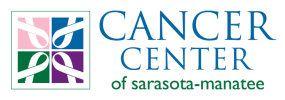
Breast Cancer Technology
CUTTING EDGE TECHNOLOGY
HELPS BREAST CANCER PATIENTS MAKE BETTER TREATMENT DECISIONS
— Test Predicts Likelihood of Disease Recurrence and Chemotherapy Benefit in Newly Diagnosed Breast Cancer Patients —
(Sarasota, FL) — Despite effective therapy for many breast cancer patients who are diagnosed early, breast cancer remains the second leading cause of cancer death in women. It is estimated that 178,000 new cases of breast cancer will be diagnosed in the U.S. in 2007, making it the most common type of cancer in women. Approximately half of the women diagnosed with breast cancer are predicted to be early stage lymph-node negative, estrogen-receptor positive breast cancer patients. Among the many challenges breast cancer patients face, one of the most difficult is deciding on a treatment approach.
The Oncotype DX test predicts the likelihood of disease recurrence and likelihood of chemotherapy benefit based on the gene expression profile of an individual’s tumor, thereby enabling physicians and patients to make more informed choices about the treatment most likely to be effective based on the molecular biology of the cancer, and providing information that can suggest when chemotherapy may be unnecessary.
“The Oncotype DX test service provides important, consistent and reliable information that we believe will greatly improve treatment planning and, ultimately, lead to better patient outcomes,” said Steven Mamus, M.D., Medical Oncologist/Hematologist and Director at the Cancer Center of Sarasota (www.cancersarasota.com). “With this information we can work with our patients to determine the most effective treatment approach that will in some cases allow women to avoid unnecessary chemotherapy.”
BREAKTHROUGH TECHNOLOGY
HOW IT WORKS
When breast cancer is suspected, patients routinely have a biopsy to confirm or rule out a cancer diagnosis. If lymph-node negative, estrogen-receptor positive breast cancer is detected, a small sample from the patient’s biopsy is sent to Genomic Health’s pathology reference laboratory in Redwood City, California, where the Oncotype DX service is performed. Oncotype DX uses RNA analysis of tumor tissues to measure the expression profile of a panel of 21 genes that have been demonstrated to be involved in breast cancer, including those related to the estrogen receptor, HER2 and proliferation as well as several other pathways. Based on results of the Oncotype DX assay, a recurrence score from 0-100 is determined. The Recurrence Score predicts whether an individual is at high, intermediate, or low risk for the likelihood of disease recurrence. A recent study demonstrated that breast cancer patients with high Recurrence Scores (and high risk of recurrence), as identified by the Oncotype DX assay, also have a large absolute benefit from chemotherapy. This group represents about 25 percent of patients with node-negative, estrogen receptor-positive breast cancer. Patients with low Recurrence Scores (and low risk of recurrence) only derive minimal benefit from chemotherapy and represent about 50 percent of patients with node-negative, estrogen receptor-positive breast cancer. Steven Mamus, M.D. is board certified in Medical Oncology, Hematology, and Internal Medicine. He previously served as Chief of Medical Oncology at MD Anderson-Orlando, and has been named a top physician by Best Doctors in America, Southeast Region, for the past twelve years. Dr. Mamus founded the Cancer Center of Sarasota to provide compassionate and expert care in a smaller, more personalized setting. For more information, visit www.cancersarasota.com or phone 941.923.1872. About Oncotype DX Oncotype DX represents the first diagnostic multi-gene expression test service commercially available that has clinical evidence validating its ability to predict the likelihood of breast cancer recurrence, the likelihood of patient survival within 10 years of diagnosis and the likelihood of chemotherapy benefit. Oncotype DX has been extensively evaluated in multiple independent studies involving more than 2,600 breast cancer patients, including a large validation study published in The New England Journal of Medicine and a chemotherapy benefit study published in the Journal of Clinical Oncology. To date, over 5,500 physicians have ordered a cumulative total of more than 27,000 tests and approximately 125 million lives are now covered by reimbursement contracts and agreements. For more information about Oncotype DX, please visit www.oncotypedx.com.
